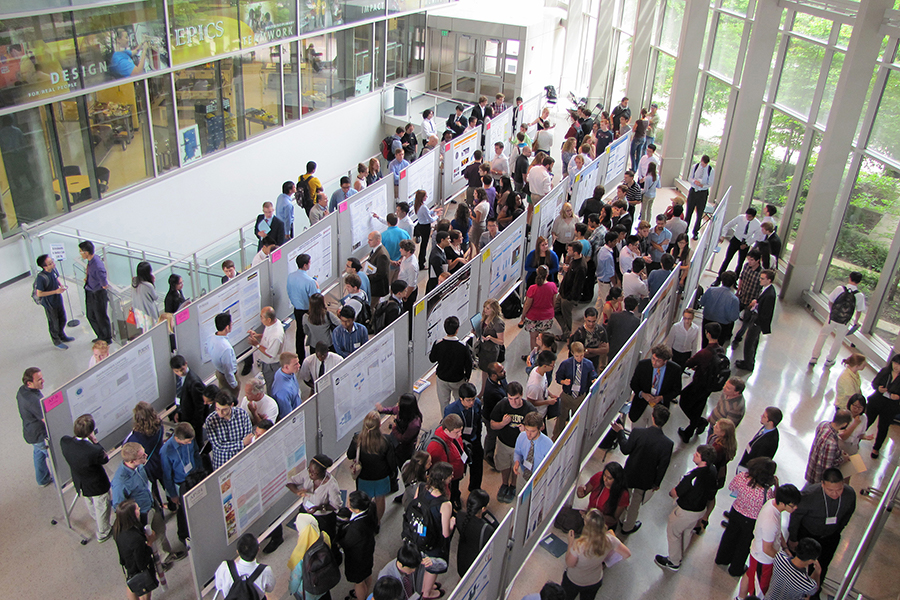Engineering’s Undergraduate Research Office to Open in January
The office will expand on the College’s Summer Undergraduate Research Fellowship Program (SURF) launched in 2003. It will offer a portfolio of research opportunities for students of all levels throughout the academic year, and will be directed by Dean’s Fellow John Howarter, an associate professor of Materials Engineering and of Environmental and Ecological Engineering.
“In the last five years, many students have come in with significant research experience as high school students, and some want to get into research in their second year,” says Melba Crawford, associate dean for Research, professor of Civil Engineering, professor of Electrical and Computer Engineering, and professor of Agronomy. Crawford spearheaded the new office with Eckhard Groll, associate dean for Undergraduate and Graduate Education and the Reilly Professor of Mechanical Engineering.
To this point, most of the College’s undergraduate research opportunities have been through SURF in the summer. Applications for that program have soared, with as many as 500 students vying for 150 slots, Crawford says. SURF Fellows engage in research with faculty and graduate student mentors and learn professional skills, such as how to write an abstract, give a presentation, and create a poster. They also learn from guest speakers. “Getting involved in research can be very motivating for people,” Crawford says.
The Office of Undergraduate Research will be located in Potter Hall and will collaborate with its neighbor, the Office of Professional Practice, to “refresh and extend the undergraduate research program and expand to other forms of research with a more organized approach to the academic year,” Crawford says.

The office will create a database of research opportunities; some for academic credit, and some for pay. By providing research experience to younger students, the College is also able to encourage students to pursue Engineering at the graduate level and to tackle today’s global Grand Challenges, Groll says.
“The current generation sees issues on the news that are more technical in nature than they were decades ago. There are challenges that we need technology for, and undergraduate research is a gateway to that technology,” Groll says. “There is a worldwide trend toward more advanced degrees in Engineering to keep up with technology.”
Crawford knows, first-hand, the power of undergraduate research opportunities to inspire young students. As a high school student from a small rural school, she attended a residential introduction to engineering summer program at the University of Illinois, and completed a research project. That, she says, combined with a desire to solve environmental challenges motivated her to study civil and environmental engineering, and to pursue a doctorate in Operations Research.
“There are many students who want to do research, but there has been no front door for undergraduate research,” Crawford says. That door is now open.
